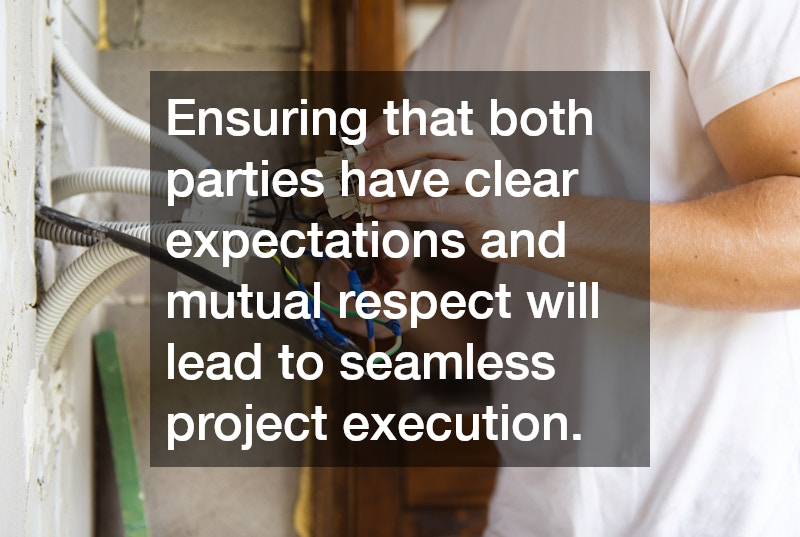Choosing the right commercial electrician is crucial for ensuring the safety and efficiency of your business operations. This guide will help you navigate the process to make an informed decision.
What Qualifications Should You Look for in a Commercial Electrician?
Required Licenses and Certifications
Before hiring a commercial electrician, it’s important to confirm that they possess the necessary licenses and certifications. These credentials not only ensure legal compliance but also affirm the electrician’s expertise and knowledge in handling commercial projects.
Regulatory bodies require these qualifications to maintain industry standards and protect the end consumers. Hiring an unlicensed electrician can lead to inadequate work and potential legal issues down the line.
Additionally, certifications from recognized industry bodies can indicate an electrician’s commitment to ongoing education and excellence. Verified qualifications are a testament to the electrician’s ability to adapt to new technologies and methods in the electrical field.
Experience and Specialization
Experience matters when selecting an electrician, especially for commercial projects that can differ greatly from residential ones. It’s essential to find a professional with a proven track record in handling tasks similar to those your business requires.
Specialization ensures that the electrician is familiar with the specific demands and regulations associated with your industry. For instance, electricians who focus on commercial properties are usually well-versed in large-scale electrical systems, such as those found in office buildings or factories.
An electrician with the right specialization can anticipate potential issues and provide efficient solutions. By aligning your needs with their expertise, you can achieve a seamless and successful electrical project implementation.
How to Evaluate the Reputation of Potential Electricians?
Checking References and Reviews
One of the most effective ways to evaluate an electrician’s reputation is by reviewing feedback from previous clients. Checking references and online reviews can provide valuable insights into the electrician’s reliability and quality of work.
While personal recommendations carry significant weight, online platforms often host a larger volume of reviews which can highlight recurring satisfaction or issues. Being thorough in this research can save your business time and avoid future dissatisfaction.
However, it’s important to consider the context of reviews and look for consistent patterns in client feedback. A few negative reviews among many positive ones are not uncommon but consistent praise for professionalism and quality is a good sign.
Assessing Professional Affiliations
Professional affiliations with organizations such as the National Electrical Contractors Association (NECA) can be an indicator of an electrician’s commitment to industry standards. These memberships often require adherence to specific codes of conduct and ongoing education.
Electricians who are members of reputable organizations tend to have greater access to resources and industry developments, which can enhance their service quality. These affiliations demonstrate an electrician’s dedication to professionalism and continuous improvement.
By choosing an electrician with strong professional ties, you ensure that your business is partnering with a trusted and reputable figure in the industry. This boosts confidence in their capabilities to handle your specific needs efficiently and safely.
What Should You Consider in Terms of Cost and Contracts?
Understanding Pricing Structures
Transparency in pricing is crucial when choosing a commercial electrician, as hidden costs can severely impact your budget. Understanding an electrician’s pricing structure involves knowing how they estimate and bill for their services.
Some electricians may charge by the hour, while others may offer flat rates for specific tasks. It’s also important to inquire about additional costs such as materials, travel fees, or emergency call-outs to have a full picture of the expected financial commitment.
Clear communication and written estimates can prevent misunderstandings and ensure both parties are on the same page. These steps guard against unexpected expenses and allow for better financial planning.
Evaluating Contract Terms and Guarantees
Contracts form the backbone of any business relationship and outline the scope of work, timelines, and payment terms with a commercial electrician. Evaluating contract terms thoroughly ensures the agreement protects your interests as much as it does the electrician’s.
Key elements to examine include warranties on work and materials, liability clauses, and service guarantees. These terms hold the electrician accountable to fulfill their obligations and safeguard your business investment.
A well-drafted contract minimizes risks and provides legal recourse in case of disputes or unsatisfactory service. Understanding and agreeing to these terms allow for a positive and professional working relationship.
Taking the time to thoroughly evaluate potential commercial electricians based on qualifications, reputation, and contract details will lead to a safer and more efficient partnership for your business needs. A reliable electrician ensures not only regulatory compliance but also elevates your business’s operational efficacy.
By focusing on these critical factors, you set the foundation for a successful, long-lasting professional relationship. Ensuring that both parties have clear expectations and mutual respect will lead to seamless project execution.
